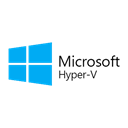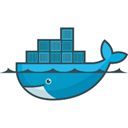Uncovering the Best Kubernetes Alternatives for Container Orchestration
Kubernetes has solidified its position as the de facto standard for container orchestration, helping developers deploy, scale, and manage containerized applications with impressive efficiency. However, its power often comes with a steep learning curve and significant operational overhead. For many organizations, particularly those with simpler needs or specific architectural preferences, exploring robust Kubernetes alternatives can lead to more streamlined workflows, lower costs, and a better fit for their infrastructure. This article dives into some of the top contenders that offer compelling solutions for managing your containerized applications without the full complexity of Kubernetes.
Top Kubernetes Alternatives
Whether you're seeking a simpler solution, a fully managed platform, or a different approach to container management, there's a Kubernetes alternative out there for you. We've compiled a list of excellent options, each with its own strengths and ideal use cases.

Heroku
Heroku is a platform as a service (PaaS) that simplifies application deployment and management. As a Freemium service available on Mac, Windows, Linux, and Web, it abstracts away infrastructure concerns, allowing developers to focus purely on code. Its features like Custom DNS, DNS management, and Automated deployment, along with support for Python and VPS, make it an excellent Kubernetes alternative for teams prioritizing rapid development and minimal operational overhead without deep infrastructure management.

Vagrant
Vagrant is a Free and Open Source tool designed for building complete virtualized development environments. Available on Mac, Windows, Linux, BSD, and supporting VirtualBox, VMware Workstation, VMware Fusion, and FreeBSD, it streamlines environment setup. While not a direct container orchestrator, its Cluster management and Virtualization features provide a robust local development workflow that can complement or even reduce the immediate need for complex orchestration, making it a viable Kubernetes alternative for development and testing environments.

OpenShift
OpenShift, Red Hat's Freemium and Open Source PaaS, offers an auto-scaling platform for applications, primarily on Linux and Web. It manages the application stack in the cloud, similar to Kubernetes but with an enterprise-grade focus. Its Container monitoring and Web Development features make it a powerful Kubernetes alternative, particularly for organizations seeking a more integrated and opinionated platform experience with strong enterprise support.

virt-manager
The virt-manager application is a Free and Open Source desktop user interface for managing virtual machines through libvirt. Primarily targeting KVM VMs but also managing Xen and LXC, it's available on Linux, BSD, Gentoo Linux, Fedora, Debian, and OpenBSD. With features like FOSS, SSH, VNC Viewer, Live migration, Virtual Machines, and Virtualization, it serves as a powerful local or small-scale virtualization management tool. While not a container orchestrator, it can be a Kubernetes alternative for those primarily concerned with VM management and a less complex setup for a few applications.

Portainer
Portainer is a Free and Open Source simple management solution for Docker, available on Windows and Linux. It allows users to easily manage Docker hosts and Docker Swarm clusters via its intuitive web user interface. Its focus on Container and Docker UI management, along with explicit Support for Docker, makes it an excellent, lighter-weight Kubernetes alternative for those already heavily invested in the Docker ecosystem and seeking a straightforward GUI for management.

Rancher
Rancher is a Free and Open Source project that offers a complete platform for operating Docker in production, available on Windows and Linux. It provides infrastructure management and features like Cloud Monitoring and Support for Docker. Rancher aims to simplify the complexities of running Docker at scale, serving as a powerful Kubernetes alternative for organizations looking for a comprehensive Docker management platform that can also integrate with Kubernetes if needed, or function independently for simpler Docker deployments.

Nanobox
Nanobox is a Commercial and Open Source platform designed for developers, taking on the role of DevOps. Available on Mac, Windows, Linux, and Web, it handles infrastructure creation, configuration, and management. Its features include Automated deployment, Cloud coding, DEV/OPS setup, Developer Tools, IDE, and Works Offline capabilities. For teams looking to offload DevOps responsibilities and gain a fully managed development and deployment experience, Nanobox offers a compelling, opinionated Kubernetes alternative.

Apache Mesos
Apache Mesos is a Free and Open Source cluster manager that simplifies running applications on a shared pool of servers, available on Mac and Linux. It acts as a distributed kernel, offering resource isolation and scheduling capabilities. With features like Hypervisor, Operating system, Virtual Machines, and Virtualization, Mesos provides a robust foundation for building distributed systems. It's a foundational Kubernetes alternative, particularly for those building custom distributed frameworks or requiring fine-grained control over cluster resources.

Microsoft Hyper-V Server
Microsoft® Hyper-V™ Server 2008 R2 is a Commercial, stand-alone virtualization solution available on Windows and Linux. It provides a reliable and optimized way to improve server utilization through Hypervisor and Virtualization features. While not a container orchestrator, Hyper-V is a fundamental Kubernetes alternative if your primary need is robust server virtualization to host various workloads, including potentially Docker hosts, without the complexity of a full-blown orchestrator.

Cloud Foundry
Cloud Foundry is an Open Source PaaS for Java, Ruby, Python, and Node.js applications, available as a Free web-based platform. It provides a mature environment for deploying and scaling applications with features like PHP IDE, MongoDB, Python, and Ruby support. As a comprehensive PaaS, Cloud Foundry offers a strong Kubernetes alternative for developers who prefer a high-level abstraction and rapid application delivery without managing the underlying container infrastructure directly.

Dokku
Dokku is a Free and Open Source Docker-powered mini-Heroku, written in Bash, available as a Web and Self-Hosted solution. It enables users to deploy applications to a server quickly with a Heroku-like Git push workflow. While it lacks explicit listed features, its simplicity and lightweight nature make it an excellent Kubernetes alternative for small to medium-sized projects or individual developers seeking a straightforward, self-hosted PaaS.

Last.Backend
Last.Backend is a Free and Open Source system for automating deployment, scaling, and management of containerized applications, available on Linux. It offers Continuous Deployment, Continuous Integration, and Support for Docker. As a comprehensive open-source platform, Last.Backend presents a compelling Kubernetes alternative for those who want a self-hosted solution for modern CI/CD and container management, providing a full lifecycle management experience.

Deis
Deis is a Free and Open Source PaaS that leverages Docker, CoreOS, and Heroku Buildpacks to provide a lightweight and flexible private application platform, available on Linux. It includes features like Support for Docker, Hypervisor, Operating system, Virtual Machines, and Virtualization. Deis acts as a strong Kubernetes alternative, offering a robust PaaS experience for organizations that prefer to build and manage their own private cloud platform with a focus on Docker and modern infrastructure components.

Lazydocker
Lazydocker is a Free and Open Source simple terminal UI for Docker and Docker-compose, written in Go. It's available on Mac, Windows, Linux, and Docker. With its core features focusing on Support for Docker and a GUI, Lazydocker is not a direct orchestrator but rather a productivity tool. It serves as a valuable Kubernetes alternative for individual developers or small teams managing Docker containers and Docker Compose setups who desire a more interactive and streamlined command-line experience without the overhead of a full orchestration system.

Docker Swarm
Docker Swarm is native clustering for Docker, allowing users to create and access a pool of Docker hosts using the full suite of Docker tools. It's Free and available on Mac, Windows, Linux, Self-Hosted, and Docker. With features like Support for Docker, Hypervisor, Operating system, Virtual Machines, and Virtualization, Docker Swarm provides a simpler, integrated orchestration solution compared to Kubernetes. It's an excellent Kubernetes alternative for teams already deeply integrated with Docker and seeking a less complex, built-in clustering solution for their containerized applications.
Ultimately, the best Kubernetes alternative depends on your specific use case, team's expertise, budget, and desired level of control. Whether you opt for a fully managed PaaS like Heroku, a Docker-centric solution like Portainer or Docker Swarm, or a more foundational cluster manager like Apache Mesos, exploring these options can lead to a more efficient and effective strategy for your containerized applications.